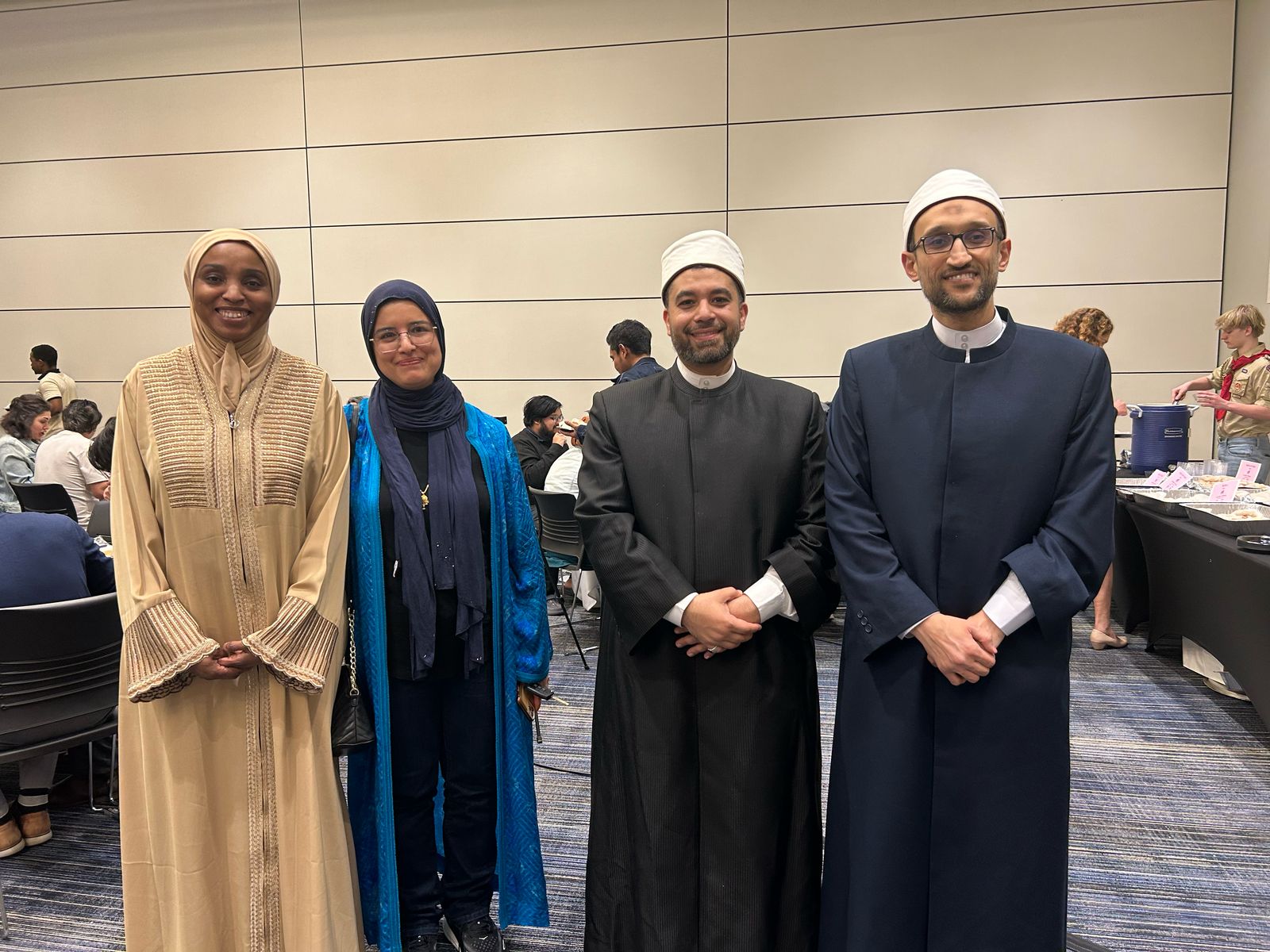Muslim Council of Elders’ Envoys to the U.S. Participate in Community Iftar at the University of Kansas
Envoys from the Muslim Council of Elders to the United States, tasked with reviving the spiritual atmosphere of Ramadan and promoting the values of enlightened Islamic moderation, took part in a communal iftar hosted by the University of Kansas in collaboration with the Islamic Center of Lawrence. The event was attended by members of the Muslim community, as well as university students and faculty members.
During their participation, Osama Khaled, a researcher at the Technical Office of the Grand Imam of Al-Azhar, and Ahmed Sobhi, a member of the Al-Azhar Observatory for Combating Extremism, gave an introductory presentation on the efforts of Al-Azhar Al-Sharif and the Muslim Council of Elders in fostering dialogue, tolerance, and peaceful coexistence. They also highlighted various initiatives aimed at promoting peace, compassion, and cooperation among people of different backgrounds while reinforcing the positive integration of Muslims into their societies and addressing all forms of extremism, racism, intolerance, discrimination, and Islamophobia.
The delegation of envoys from the Muslim Council of Elders also participated in a roundtable discussion on Arabic language education at the same university. The session explored key traditions observed by Muslims during the holy month of Ramadan, featuring discussions on Islamic customs and traditions in countries such as India, Pakistan, Egypt, Nigeria, and Morocco. This event was coordinated with the university’s Departments of Religious Studies, Arabic Language, and African American Studies and was attended by the heads of the Religious Studies and African American Studies departments at the University of Kansas.
For the second consecutive year, the Muslim Council of Elders, under the chairmanship of His Eminence Professor Dr. Ahmed Al-Tayeb, the Grand Imam of Al-Azhar, has remained committed to dispatching religious delegations to various countries around the world during Ramadan. These efforts aim to advance the principles of moderation and enlightened Islamic thought, reaffirming the significance of religious diplomacy in fostering peace and promoting dialogue, tolerance, and coexistence.
This year, the initiative includes more than 32 Quran reciters and scholars, who have been sent to nine countries worldwide, including Spain, Italy, Germany, Kazakhstan, Russia, Indonesia, Malaysia, Pakistan, and the United States. These envoys lead prayers, recite the Glorious Quran, and deliver sermons, religious lessons, and lectures.
Through these efforts, the Muslim Council of Elders seeks to strengthen connections with Muslim communities across the globe, enhance religious awareness, and support their positive integration into their respective societies—protecting them from the influence of extremist ideologies and shielding them from falling prey to violent and terrorist groups.

